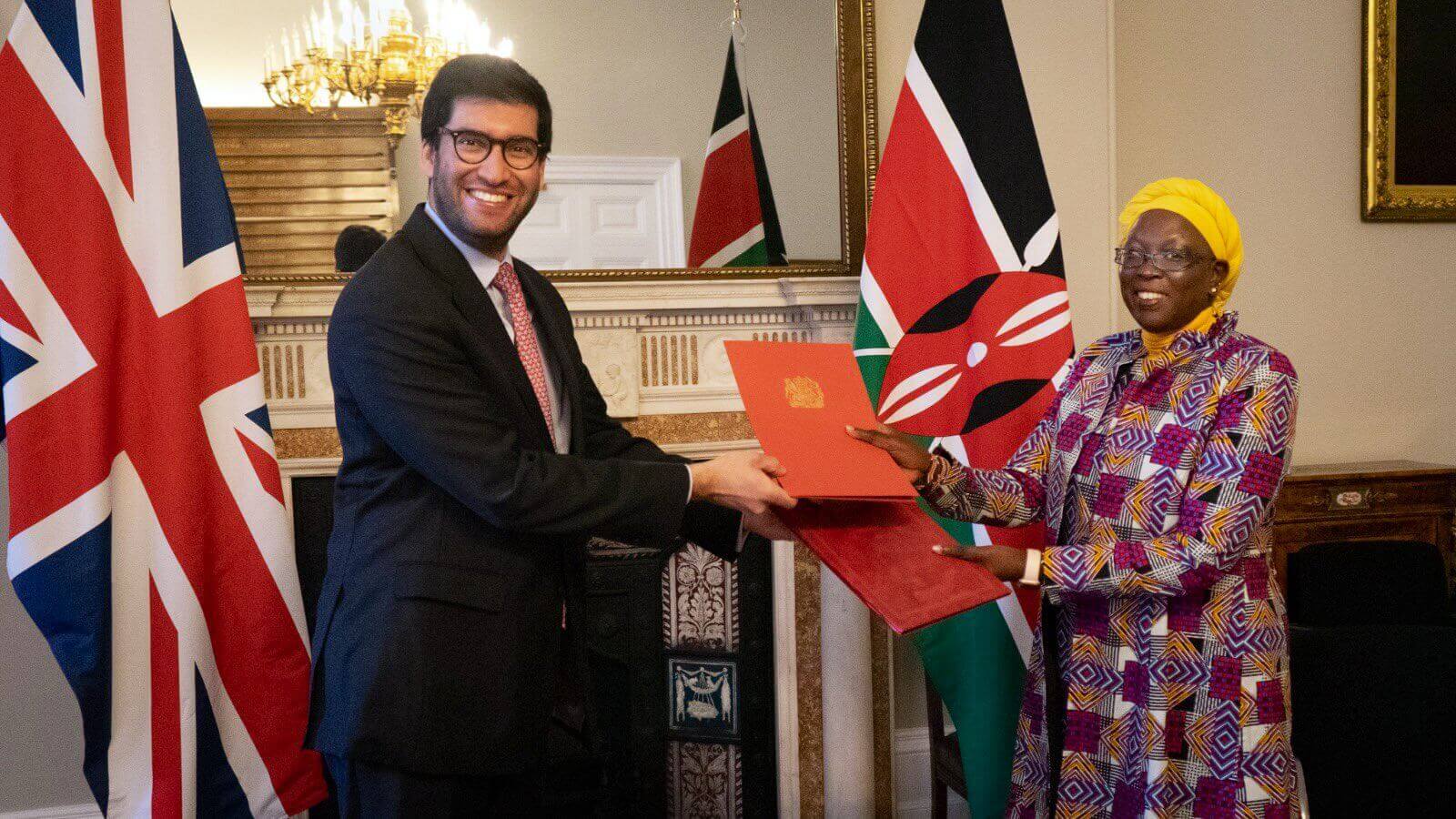A little over a month after the United Kingdom (UK) and Kenya reached a consensus on the broad terms of a new trade deal, UK Trade Minister Ranil Jayawardena and Kenyan Trade Cabinet Secretary Betty Maina met in London to formally sign an agreement prior to the Brexit deadline at the end of this month.
The agreement will allow Kenyan producers of flowers, coffee, tea, and fresh vegetables to export their goods to the UK without the imposition of duties or quotas, which replicates the arrangement the two countries shared while the UK was still a part of the European Union (EU). The deal could be expanded to include textile, livestock, fish, and other processed goods. The new deal also simplifies the process for Kenya to export processed items that were produced within its borders but whose raw materials were imported from elsewhere. Likewise, UK exporters of vehicles, pharmaceuticals, and paper will benefit from greater access to the Kenyan market. The deal is expected to benefit around 2,500 British businesses, especially suppliers of machinery, electronics, and technical equipment, which is in turn sure to expedite Kenya’s technological and industrial advancement. Furthermore, there are over 220 UK firms operating in Kenya.
At present, trade between the two countries stands at $1.8 billion per year, with the UK representing Kenya’s fifth-largest export destination. In fact, 43% of Kenya’s vegetable exports are destined for the UK.
The UK had originally envisioned an identical agreement with all the countries in the East African Community (EAC)—an intergovernmental organisation comprised of Burundi, Kenya, Rwanda, South Sudan, Tanzania, and Uganda. However, certain countries, like Uganda and Tanzania, preferred to delay negotiations until 2021 once both countries had completed their elections. Although Tanzanian President John Magufuli maintained his incumbency in the October election, his administration has yet to enter into formal negotiations with the UK. Uganda’s election, on the other hand, is scheduled for January. Meanwhile, Burundi and South Sudan did not even participate in the meetings between the UK and EAC member-states.
EAC member-states currently have duty-free and quota-free access to the UK market. However, this deal is set to expire at the end of the year, which has been set as the deadline day for the transition to a post-Brexit future. Hence, the negotiation of a new trade agreement will protect against an 8% duty that would have otherwise been charged once the UK left the EU.
The initiative shown by Kenya to sign the agreement before the Brexit deadline is derived from the fact that it is classified as a lower-middle-income country, which means that, in the absence of a free trade agreement (FTA), its exports will be subject to taxes and other trade restrictions by the UK. Other countries in the Community, however, are categorized as Least Developed Countries (LDC), which affords them unrestricted access to the UK market, even without an FTA.
This point was emphasised by Kenyan Cabinet Secretary Maina, who said, “Kenya adopted this (bilateral) approach because of the Brexit transition period's fast-approaching deadline and the need to secure duty-free and quota-free market access to the UK.”
Meanwhile, UK Trade Minister Jayawardena said, “Today’s agreement is also a first step towards a regional agreement with the East African Community, and I look forward to working with other members to secure an agreement to forge ever-closer trading ties.”
This point was echoed by the Minister for Africa, James Duddridge, who said, “This agreement will provide the strongest possible platform for the United Kingdom, Kenya and, ultimately, the whole EAC, to expand our trade relationship in future.”
The trade deal between the UK and Kenya is accompanied by a parallel increase in climate cooperation between the two countries. Last week, British High Commissioner Jane Marriott announced that the UK is putting $15 billion towards “providing international climate finance”, with Kenya being one of the recipients of this aid. The UK recently announced its goal of becoming carbon neutral by 2050.
The UK has been rapidly stepping up FTA negotiations due to its impending exit from the EU. In fact, over the last two years, the UK has signed trade agreements with 55 countries.
Kenya Inks Trade Agreement With UK Before Brexit Deadline, Avoiding Duties and Quotas
The agreement will allow Kenyan producers of flowers, coffee, tea, and fresh vegetables to export their goods to the UK without the imposition of duties or quotas.
December 9, 2020

UK Trade Minister Ranil Jayawardena (L) and Kenyan Trade Cabinet Secretary Betty Maina SOURCE: TWITTER
